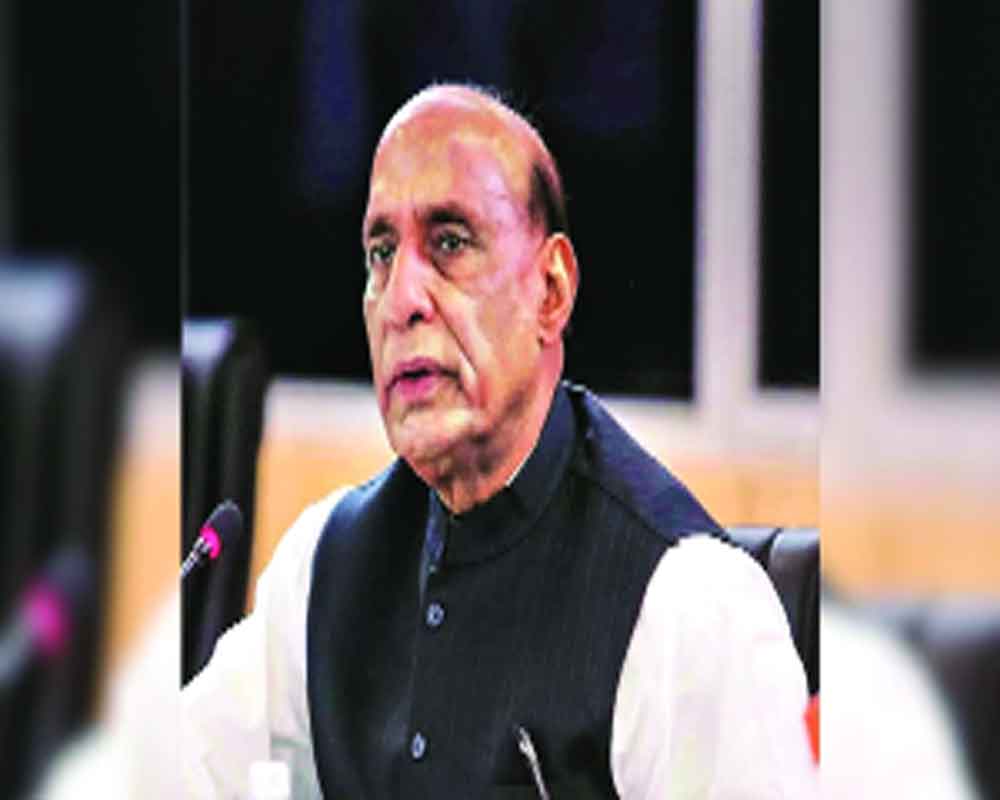Rajnath defends Agnipath scheme but, ahead of polls, says it is not carved in stone
Defence Minister Rajnath Singh, while defending the Agnipath scheme for recruitment of young defence personnel, has also expressed the Government’s openness to alterations “if deemed necessary”. The implications of the scheme stretch beyond national security, particularly concerning India’s relations with its neighbour, Nepal. In June 2022, the Centre rolled out the Agnipath scheme for short-term induction of personnel into the armed forces to bring down the age profile of the three services. Under this scheme, all military recruitment transitions to an ‘All India All Class’ basis, wherein the selected youth, termed Agniveers, commit to four years of service, including a six-month training period. Following this tenure, 25 per cent of Agniveers transition to permanent service, while the remainder pursues alternative employment opportunities outside of the armed forces. Agniveers receive a starting monthly salary of Rs 30,000, escalating to Rs 40,000 in the fourth year, with a portion allocated to the Agniveer Corpus Fund, matched by Government contributions, resulting in a substantial payout of Rs 11.71 lakh at the end of four years. Additionally, each Agniveer receives non-contributory life insurance cover of Rs 48 lakh for the duration of the engagement. However, there are no gratuity or pension benefits for Agniveers, with those opting for permanent service committed to a minimum additional 15-year tenure. The scheme aims to address military restructuring and modernisation needs while infusing technology-savvy youth into the armed forces. By selecting only 25 per cent of Agniveers for permanent service, the military seeks to ensure a high-quality pool for Non-Commissioned Officers (NCOs) while curbing rising pay and pension expenses.
Despite the offered benefits, concerns have arisen regarding its potential impact on military ethos, professionalism and operational efficiency. Questions linger regarding the maintenance of unit cohesion, the readiness of inexperienced Agniveers for live operational scenarios and the long-term attractiveness of military service. Critics question the scheme’s impact on the regimental system of the Indian Infantry and advocate for rigorous testing before full implementation. While some argue for gradual induction to mitigate adverse effects, others emphasise the need for empirical evaluation to safeguard military standards. Broadly speaking, the scheme has not gone down well with the aspiring youth. They feel that most of them would be left without a job in their prime. Moreover, the Gurkhas of Nepal have summarily rejected this scheme and are now looking for options in other countries. This seriously jeopardises India’s defence muscle. It has been almost four years since the scheme was launched, and it is the first time the Government has shown its openness to make amendments. The Congress has already termed it an election gimmick. Whatever the reasons, it would be good if the Govt returns to the drawing board and reconsiders the various issues in national interest.


























